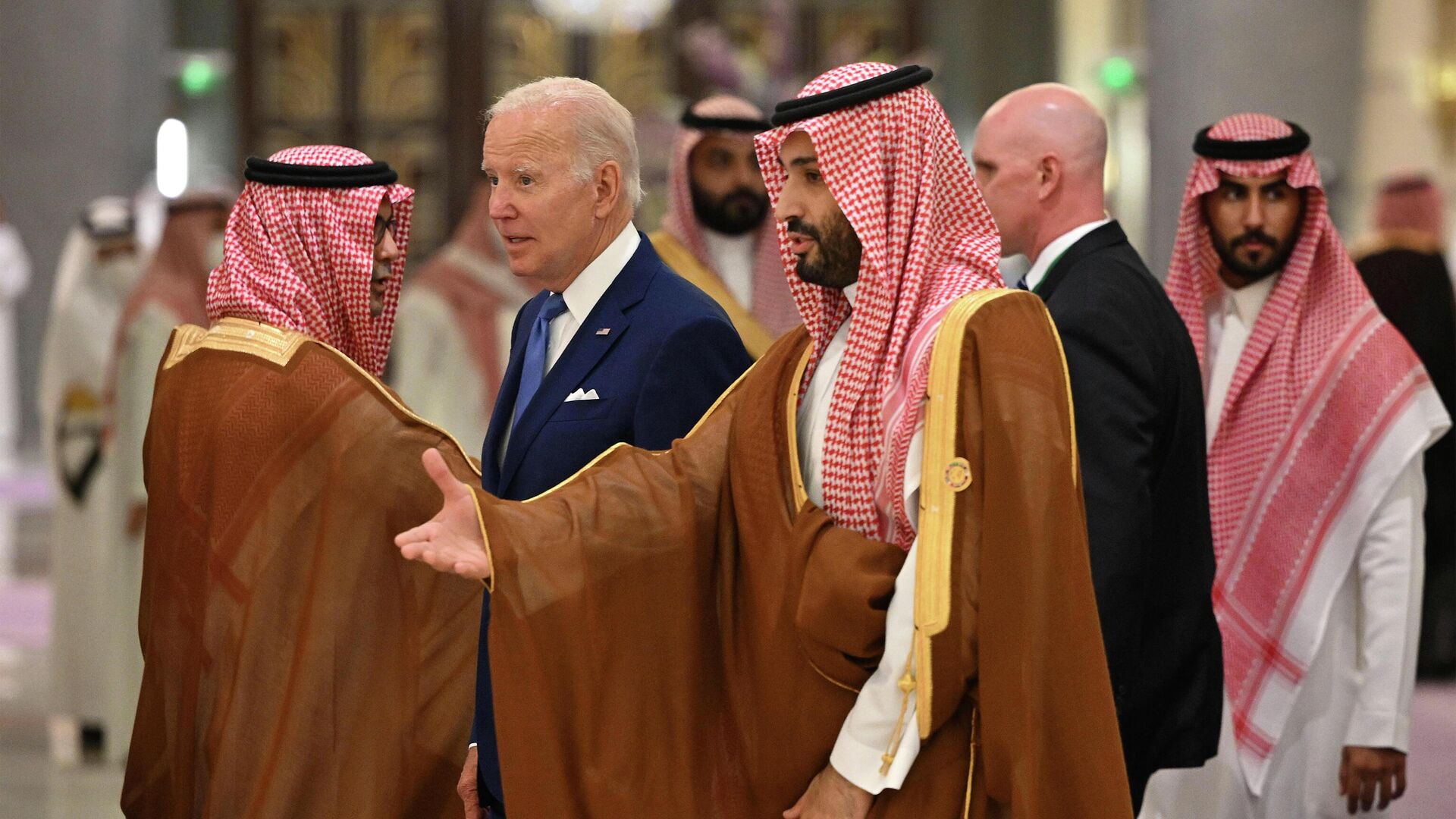https://sputnikglobe.com/20221014/us-saudi-arabia-have-multiplicity-of-interests-relating-to-bilateral-ties---state-dept-1101862806.html
US, Saudi Arabia Have Multiplicity of Interests Relating to Bilateral Ties - State Dept.
US, Saudi Arabia Have Multiplicity of Interests Relating to Bilateral Ties - State Dept.
Sputnik International
WASHINGTON (Sputnik) - The United States still believes that Riyadh and Washington have a multiplicity of mutual interests, US State Department deputy... 14.10.2022, Sputnik International
2022-10-14T21:06+0000
2022-10-14T21:06+0000
2022-10-14T21:06+0000
americas
us
opec
saudi arabia
https://cdn1.img.sputnikglobe.com/img/07e6/07/10/1097380986_0:0:3073:1728_1920x0_80_0_0_c9bfa9346a68a9ceae98e55c752dbd24.jpg
Saudi Arabia's Foreign Ministry said on Thursday that The Kingdom affirms that it views its relationship with the United States of America as a strategic one that serves the common interests of both countries.When asked whether he believes that the relationship with Saudi Arabia is of mutual interest and Riyadh is a partner when it comes to countering terrorism or ending the war in Yemen or confronting Iran, Patel said, "Absolutely."The OPEC+ alliance agreed last week to cut oil production by 2 million barrels per day from November and will take production levels agreed for August as a reference point. The move was made in response to uncertainty in global oil market outlooks, in part caused by Western sanctions on Russian energy deliveries and the G7 plans to introduce a price cap on Russian crude. The decision was met with a backlash from the United States, which demanded an increase in production to combat rising domestic prices.On Thursday, the Saudi foreign ministry denied that the OPEC+ decision to cut oil production was politically motivated against some states.
https://sputnikglobe.com/20221012/pundits-claim-us-saudi-rift-over-opec-production-cut-all-about-midterms-1101771640.html
americas
saudi arabia
Sputnik International
feedback@sputniknews.com
+74956456601
MIA „Rossiya Segodnya“
2022
Sputnik International
feedback@sputniknews.com
+74956456601
MIA „Rossiya Segodnya“
News
en_EN
Sputnik International
feedback@sputniknews.com
+74956456601
MIA „Rossiya Segodnya“
Sputnik International
feedback@sputniknews.com
+74956456601
MIA „Rossiya Segodnya“
us, opec, saudi arabia
US, Saudi Arabia Have Multiplicity of Interests Relating to Bilateral Ties - State Dept.
WASHINGTON (Sputnik) - The United States still believes that Riyadh and Washington have a multiplicity of mutual interests, US State Department deputy spokesperson Vedant Patel said on Friday.
Saudi Arabia's Foreign Ministry said on Thursday that The Kingdom affirms that it views its relationship with the United States of America as a strategic one that serves the common interests of both countries.
When asked whether he believes that the relationship with Saudi Arabia is of mutual interest and Riyadh is a partner when it comes to countering terrorism or ending the war in Yemen or confronting Iran, Patel said, "Absolutely."
"We continue to have a multiplicity of interests as it relates to our bilateral relationship with the Kingdom of Saudi Arabia," Patel said. "And of course, a big piece of that is a security relationship, one that is important towards regional stability, but also, approximately or more than 70,000 American citizens live in that Kingdom. And so we continue to keep in mind, their safety but also the broader national security interests of the United States in the region and ensuring that the steps that we take do not infringe on those interests either."

12 October 2022, 15:39 GMT
The OPEC+ alliance agreed last week to cut oil production by 2 million barrels per day from November and will take production levels agreed for August as a reference point. The move was made in response to uncertainty in global oil market outlooks, in part caused by Western sanctions on Russian energy deliveries and the G7 plans to introduce a price cap on Russian crude. The decision was met with a backlash from the United States, which demanded an increase in production to combat rising domestic prices.
On Thursday, the Saudi foreign ministry denied that the OPEC+ decision to cut oil production was politically motivated against some states.



